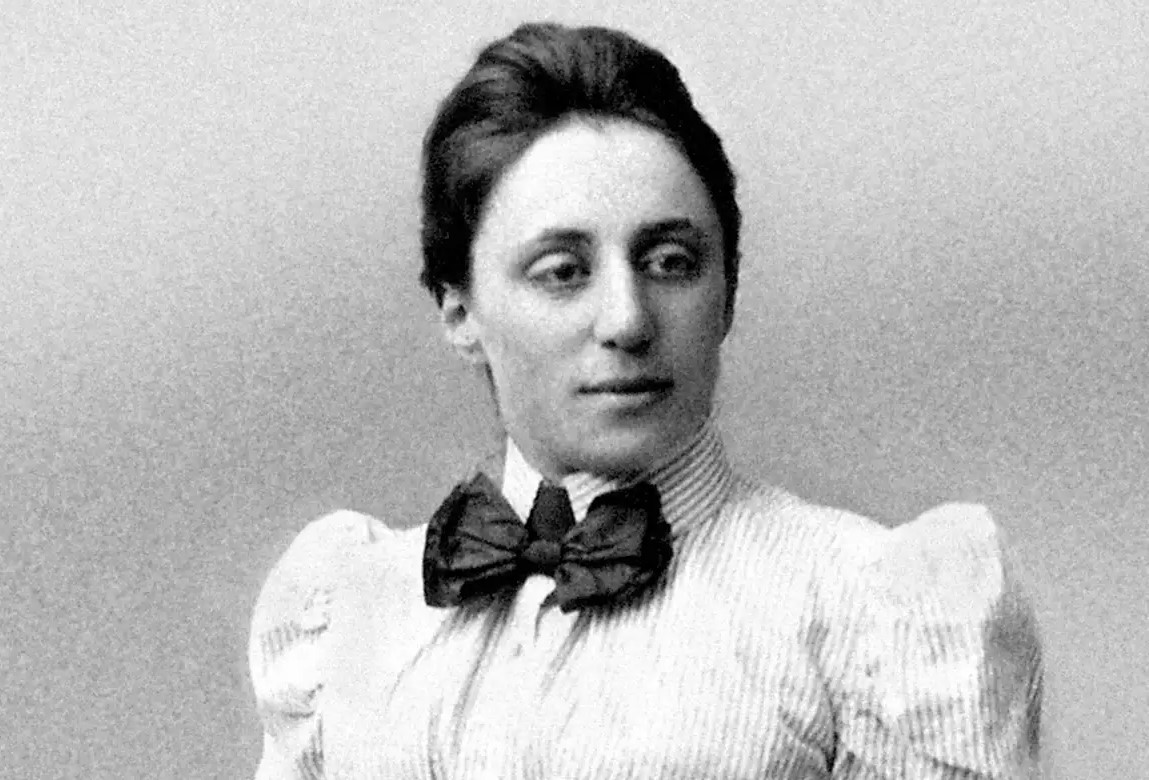In her short life, she shook mathematics and physics deeply: Who is Emmy Noether?
Like other female scientists, she struggled with a sexist society. She could not be an official student to study. She couldn't be an official professor to teach. Unfortunately, she needed the support of prominent mathematicians to be taken seriously by universities.

She eventually became a professor after being recognized as a mathematician, but she had no salary. Despite all the discrimination she faced, she continued to teach and learn. A hundred years later, her mathematical genius and "unbreakable optimism" are qualities to admire.
“The extraordinary thing about the laws of physics, believe them or not, is that they apply everywhere,” says American astronomer Neil deGrasse Tyson. American physicist Alan Sokal said: “I invite those who believe that the laws of physics are just social acceptances to try breaking those laws in the windows of my apartment. But let me remind you, my flat is on the twenty-first floor. “So where do the laws of physics come from? A good suggestion for the answer to this question came from a German mathematician named Emmy Noether.
Amalie Emmy Noether (23 March 1882 – 14 April 1935) was a German mathematician who made many important contributions to abstract algebra. She discovered Noether's First and Second Theorems, which are fundamental in mathematical physics. She was described by Pavel Alexandrov, Albert Einstein, Jean Dieudonné, Hermann Weyl and Norbert Wiener as the most important woman in the history of mathematics. As one of the leading mathematicians of her time, she developed some theories of rings, fields, and algebras. In physics, Noether's theorem explains the connection between symmetry and conservation laws.
Conservation laws are very useful for physics. In physics, the term conservation refers to something that does not change. This means that in an equation, the variable representing a conserved quantity is constant over time. This variable has the same value before and after the event.
Conservation laws are useful in several different areas of physics, but they can get very complex at times. This is where a theorem developed by Noether in the 1910s comes in handy. Emmy Noether's theorem links the laws of symmetry and conservation. In this way, one of the most beautiful theorems in physics emerges.
In a letter to the New York Times on Noether's death, Einstein wrote: "Fraulein Noether is the most important and creative mathematical genius to have emerged since women began to be included in higher education."
Emmy Amalie Noether was born in 1882 to a middle-class Jewish family. Described as an intelligent, friendly, and rather lovable child, Emmy had a relaxed kid. Her interest in mathematics started with her father.
She quickly gained a solid mathematical culture. Educational opportunities were scarce for a girl who grew up in Germany at the time. At 18, Emmy, who trained to be a teacher for three years, changed her mind. She attended the University of Erlangen in an unofficial capacity.
In 1904, after a loosening of the rules, Noether was officially registered in Erlangen. However, she couldn't enter the academic staff. As such, Noether spent the next eight years at university, working without a salary or position, helping her father with her teaching duties.
Noether's father, Max Noether, was an important mathematics professor in Erlangen. This was an advantage for Emmy Noether. Using this advantage was also the first of Noether's unexpected successes on her journey to become one of the century's greatest mathematicians.
Despite all her inhibitions and prejudices, Noether graduated from university. She completed her doctorate in 1907.
Considered the most influential mathematician of her time, David Hilbert met Noether and her father in 1903 when they paid a visit to the University of Göttingen. Hilbert, who admired Noether most and appreciated her work, persuaded Noether to come to Göttingen.
She started a campaign to appoint her to a faculty position despite a law preventing it. Eventually, Noether was allowed to teach at the university, provided her lectures were listed under Hilbert's name.
German mathematics, like so many other things, became highly politicized in the 1930s. Emmy Noether was one of the first six professors to be expelled from Göttingen. Noether's friends embarked on a search to find her a university position abroad. There were too many Jewish refugees and too few places to recruit them. Finding a permanent position in this situation was not easy.
Eventually, she found a temporary post at a junior women's college in the United States called Bryn Mawr. Noether accepted the offer. But she died in exile in 1935, at the height of her creativity and power, in her early fifties.
